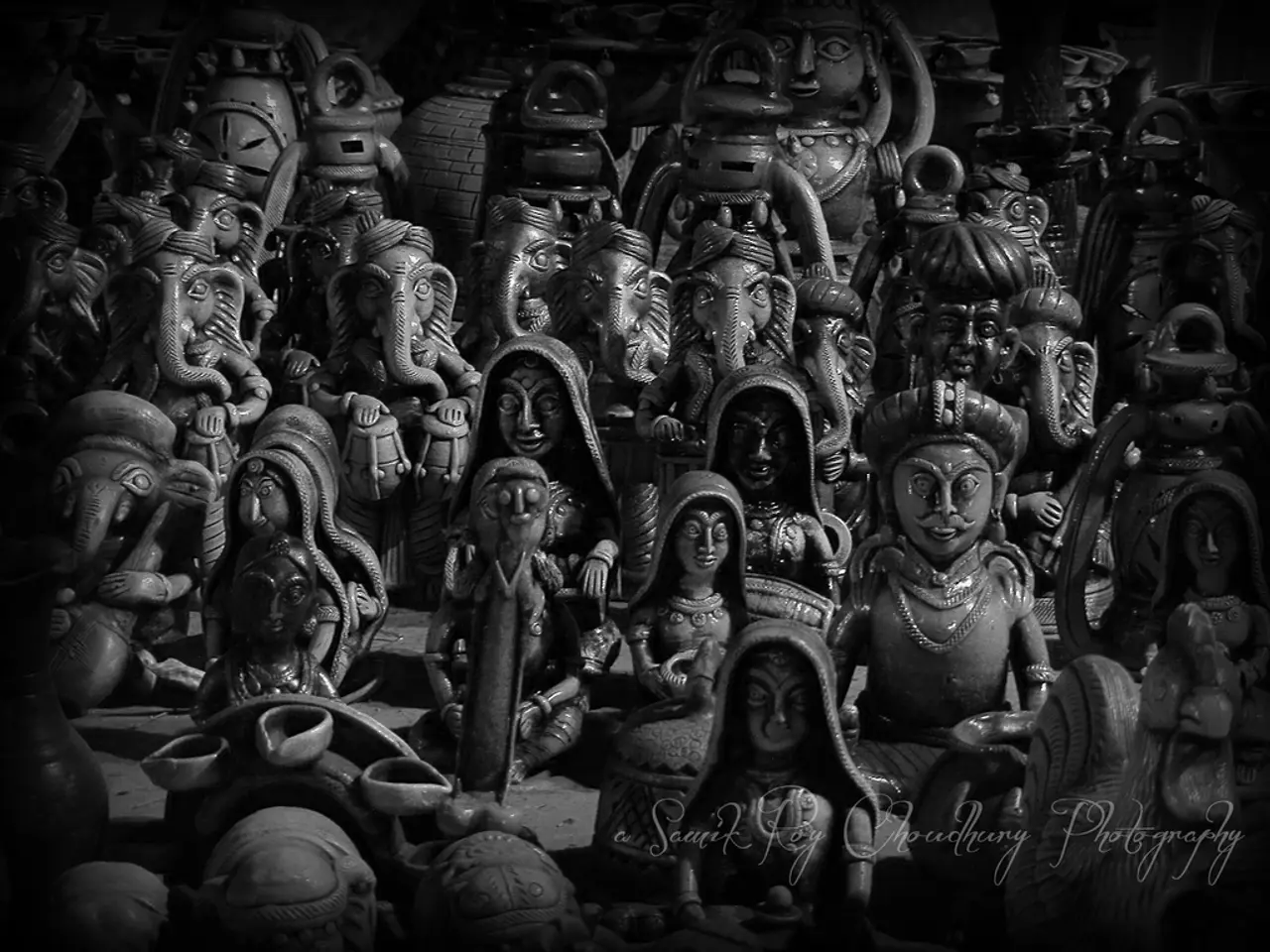India's Modi Compared to Zia-ul-Haq by Pakistan: Alarming Statement Issued to India
In a thought-provoking article titled "Trampled Rights: The Tragic Stories Behind Blasphemy-Related Killings in Pakistan," Shaukat Korai delves into the impact of religious authoritarianism in Pakistan and India, focusing on the reigns of General Zia-ul-Haq and Narendra Modi.
General Zia-ul-Haq's Religious Authoritarianism in Pakistan
Zia, who ruled Pakistan from 1977 to 1988, governed as a military dictator with a fervent pursuit of Islamization policies. Framing himself as a champion of Sunni Islam during the Cold War and regional conflicts such as the Afghan-Soviet war, Zia's regime institutionalized Islamic laws and norms, favouring Sunni interpretations. This move exacerbated sectarian tensions between Sunnis and Shias, contributing to long-lasting sectarian violence in Pakistan. Moreover, Zia's support for the Afghan Mujahideen and extremist groups during the Soviet invasion led to increased militant Islamism and instability in Pakistan, effects that persist to this day.
Narendra Modi's Religious Authoritarianism in India
Associated with the Bharatiya Janata Party (BJP) and the Hindutva ideology, Modi has merged Hindu religious identity politics with governance, challenging India’s secular democratic framework. His tenure as Gujarat Chief Minister witnessed the 2002 riots targeting Muslims, and as Prime Minister, his government has tacitly supported Hindu nationalist elements like cow vigilantes, leading to increased violence against Muslims. Modi's administration has introduced laws and constitutional amendments viewed as disadvantaging religious minorities, such as recent anti-conversion laws in BJP-ruled states aimed at preventing interfaith marriages labelled as “love jihad” (an Islamophobic conspiracy theory).
While both leaders use religion to strengthen authoritarian control, Zia’s regime formalized Islamization in a military dictatorship context, fostering sectarian conflict and militant Islamist ideologies that destabilize Pakistan. Modi’s approach leverages Hindu nationalist ideology within a democratic framework, embedding religious majoritarianism in laws and policies that undermine minority rights and secular principles in India.
| Aspect | General Zia-ul-Haq (Pakistan) | Narendra Modi (India) | |-----------------------------|-----------------------------------------------------------|------------------------------------------------------------| | Political System | Military dictatorship | Democratically elected government | | Religious Ideology | Sunni Islamic authoritarianism | Hindu nationalist Hindutva ideology | | Policy Actions | Islamization of laws, sectarian favoritism, support for militants | Anti-Muslim riots, support for cow vigilantes, anti-conversion laws | | Sectarian/Communal Impact | Increased Sunni-Shia violence and Islamist militancy | Increased Hindu-Muslim tensions and Muslim marginalization | | Legacy | Entrenched religious authoritarianism, sectarianism, militancy | Rising majoritarianism, weakened secularism, communal polarization |
Historical Context
On 4 July 1980, a demonstration by minority Shia Muslims took place in Islamabad, Pakistan, against General Zia-ul-Haq's newly promulgated Zakat and Ushr Ordinance, which enforced Sunni system of taxes on wealth and agricultural produce on the Shia community. General Zia-ul-Haq ruled Pakistan for eleven years until his death in 1988 and left indelible marks on the social and political fabric of Pakistan. Narendra Modi, now in power for exactly eleven years, has been almost unchallenged and has sought to change India in a similar way, enforcing a majority religious identity on the nation.
Comparative Analysis
While both leaders have problematic histories when it comes to sectarian violence, Modi was Chief Minister of Gujarat during the 2002 riots, in which more than 1,000 people, mostly Muslims, were killed, and he is still seen by many as complicit in the anti-Muslim violence. In December 2019, protests led by minority Muslims occurred across India against the Citizenship Amendment Act (CAA), which provided an accelerated pathway to citizenship for refugees from Islamic countries who are persecuted for belonging to a minority religion, but conspicuously failed to include Muslims.
In contrast, Modi is an elected leader, unlike Zia, who took over after a military coup and was never elected by popular vote. The Modi government has introduced Hindu nationalist ideology into the Indian education system, especially after introducing the National Education Policy of 2020. References to the Muslim Mughal rulers of India have been removed from textbooks in an attempt to minimise the long, rich history of Islam in India.
Future Implications
The unilateral revocation of Article 370 by the BJP government in 2019 not only ended the special status of Jammu and Kashmir but also led to the bifurcation of Jammu and Kashmir into two separate union territories. The Waqf (Amendment) Act, effective from 8 April 2025, empowers the central government to oversee Islamic charitable endowments, which constitute India's third-largest landholding category. These actions have raised concerns about the erosion of secular principles in India and the potential for increased communal tensions.
As the world watches, the ongoing impact of religious authoritarianism under Zia-ul-Haq and Narendra Modi serves as a cautionary tale for the future of religious and political dynamics in Pakistan and India.
*1. The image of the week could feature a comparison between the impact of blasphemy laws in Pakistan under General Zia-ul-Haq and India under Narendra Modi, highlighting their effects on human rights, freethought, and education-and-self-development.2. The article, "Trampled Rights: The Tragic Stories Behind Blasphemy-Related Killings in Pakistan," delves into the role of politics in the enforcement of blasphemy laws, linking it to crime-and-justice issues.3. As the blasphemy law continues to be a controversial topic in Pakistan and India, debates surrounded by the balance between religious sensitivity and human rights arise in general-news discourse.4. The legacy of both General Zia-ul-Haq and Narendra Modi extends beyond their tenures, shaping present-day discussions on human rights, religion, and politics, affecting the education-and-self-development of future generations.




